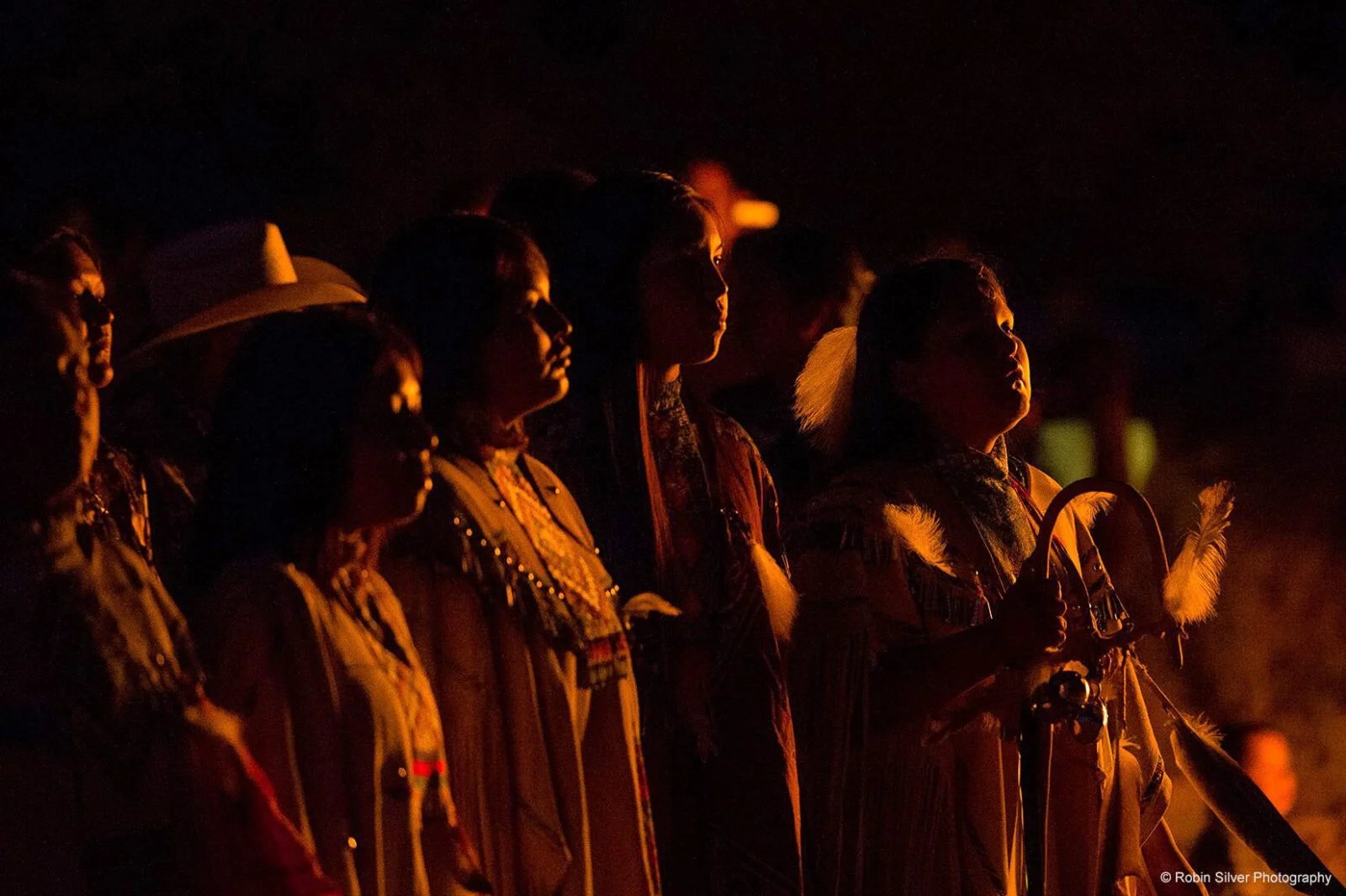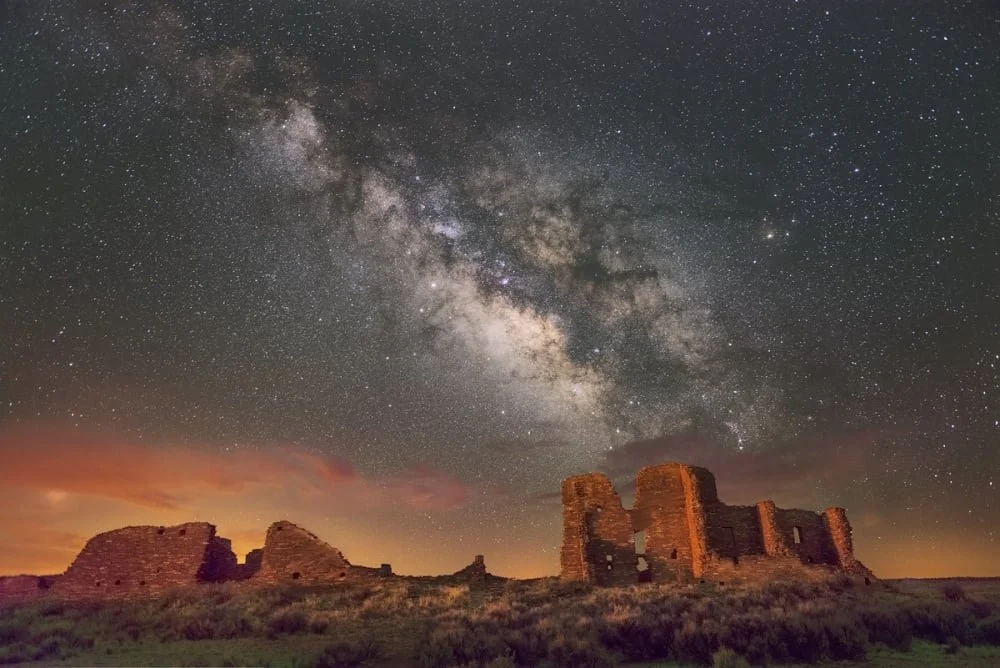#PROTECTSACREDSITES
“Messages from holy places where summer winds whisper and snow thunder warns, this is sacred ground.”
While the Wailing Wall, a sacred site in Judaism, the Hill of Golgotha, a holy site in Christianity, and Mecca, the most significant religious site in Islam, hold immense religious importance and are meticulously safeguarded, Indigenous Peoples’ sacred sites face desecration and the looming threat of destruction.
Chi’chil Biłdagoteel — Apache Holy Land
“We are in this fight together, as we are one drum, one circle, one prayer.”
In 2015, when Arizona Senator John McCain made a clandestine agreement to transfer Chi’chil Biłdagoteel, a sacred site for Apache people and other Indigenous nations within the region, to a foreign-owned mining company to extract copper, Apache Stronghold initiated a Prayer Journey all the way to the U.S. Supreme Court.
When the Supremes refused to hear the case, APACHE STRONGHOLD v. UNITED STATES, and just prior to the anticipated federal transfer of Apache Holy Land to the foreign mining corporation, the Ninth Circuit Court of Appeals, which had approved the land transfer, issued an emergency injunction. This order effectively suspended the transfer of this sacred site. On January 27, 2026, in the Court of Appeals, the Ninth Circuit will hear oral arguments.
San Carlos Apache Chairman Terry Rambler said in a statement: “The Apache people will never stop fighting for Chi’chil Biłdagoteel.” “We thank the court for stopping this horrific land exchange and allowing us to argue the merits of our pending lawsuit in court.”
The President of the United States, Donald Trump, characterized the Ninth Circuit Court of Appeals as a “radical left court” and labeled its opponents as “anti-American.”
It’s important to note that Resolution Copper, a joint venture between Rio Tinto of Australia and BHP of the United Kingdom, is not an American-owned entity. In fact, Chinalco, the largest shareholder in Rio Tinto, holds a 14.99% stake and is a Chinese state-owned entity. China is also the world’s largest copper consumer. This covert U.S. land transfer could enhance and fortify China’s supply chains, prompting inquiries regarding the veracity of “anti-American” sentiment.
Chaco Canyon — A Sacred Landscape
Chaco Canyon, a sacred landscape and designated UNESCO world heritage site in New Mexico, was occupied by Ancestral Pueblo people for 400 years between 850 CE and 1250 CE. Today, the high-desert sacred shrines and dark night skies of Chaco face significant ruin from fossil fuel and extractive industries. This poses a serious threat to the Pueblos and other Indigenous Peoples, who maintain spiritual and cultural ties to this sacred place through pilgrimage, song, and prayer.
On June 7, 2023, U.S. Secretary of the Interior Deb Haaland and the Bureau of Land Management (BLM) issued a 20-year moratorium prohibiting drilling and exploratory mining within a 10-mile “buffer zone” surrounding Chaco Canyon and the Greater Chaco Region. Now, this order, Public Land Order No. 7923, is currently being reconsidered under the current U.S. administration. The All Pueblo Council of Governors, representing the 20 sovereign Pueblos of New Mexico and Texas, has vehemently opposed the weakening of Chaco protections and has passed a resolution reaffirming its opposition.
During a news conference held on September 16, 2025, in Washington, D.C., Pueblo leaders and congressional delegation members advocated for the preservation of the “living history” at Chaco Canyon National Historical Park.
For many years, Fossil Fuel Industries have endeavored to expand their presence on Indigenous lands and territories, including Chaco Canyon and the Greater Chaco Region. Notably, 91% of what the U.S. holds as federal lands surrounding Chaco Canyon are currently leased to fossil fuel companies for drilling and fracking operations. That being so, a diverse coalition of organizations, elected officials, and environmental advocates has joined forces with Indigenous leaders to advocate for the permanent protection of Native Peoples’ Sacred Sites.








